Research Article
Issue Editorial Board

He is a scholar whose research is focused on contemporary Middle Eastern history. The primary focus of his research is on the social and political dynamics of countries such as Lebanon, Syria, and Palestine, with a particular emphasis on Armenian studies, diaspora movements, and minority communities. He develops interdisciplinary analyses on a range of topics, including interstate relations, identity formation, and historical memory.
Issue Reviewers







 Web
Web
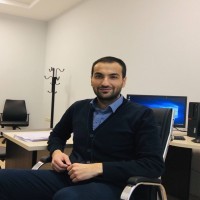


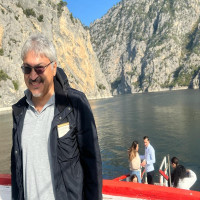
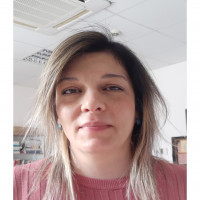
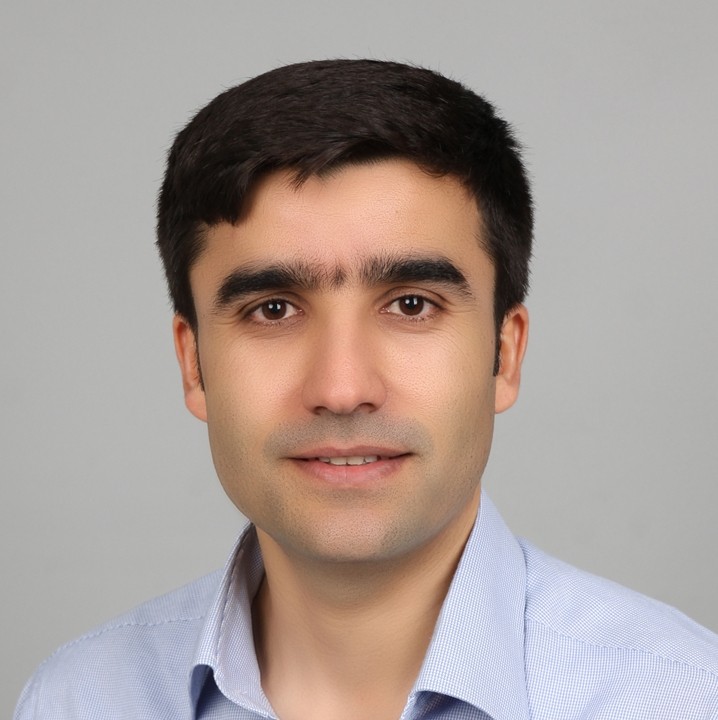
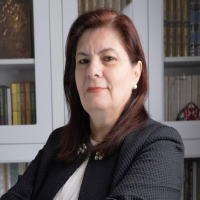
25.07.1966 yılında Giresun’un Bulancak İlçesinde doğdu. İlk-Orta ve Lise tahsilini Trabzon’da tamamladı. 1985 yılında İ.Ü. Edebiyat Fakültesi Tarih Bölümüne girdi ve bu bölümden 1989 yılında mezun oldu. Aynı yıl Tarih Bölümü Genel Türk Tarihi Anabilim Dalında Araştırma Görevlisi olarak göreve başladı. 1992 yılında “Türk’ün-İslam’la Bütünleşmesi” adlı Yüksek Lisans tezini bitirdi. 1992-1993 öğretim yılında Doktora ders programını takip etti. l993-1995 yılları arasında hem Anabilim Dalı için son derece önemli olan Rus dilini öğrenmek hem de hazırlayacağı doktora tezi konusunda kaynak çalışması yapmak üzere Türk Dünyası Araştırmaları Vakfı tarafından Kazakistan’ın Almatı şehrine gönderildi. Yine bu yıllarda Almatı’daki Abay Adındaki Almatı Devlet Üniversitesinin Doğu Dilleri Bölümünde Türk Dili, Edebiyatı, Tarihi ve Kültürü ile ilgili dersler verdi. Doktora konusu olarak aldığı İlk Rus Yıllıklarının eski Rusça yazılmalarından dolayı 1996’da Moskova ve Almatı’ya giderek 3 ay boyunca çok yoğun bir şekilde eski Rusça dersler aldı. 02.07.1998 tarihinde “İlk Rus Yıllıklarında Türkler” adlı doktora tezini tamamlayarak doktor oldu. 1998-1999’da (1 yıl) Doktora sonrası yapacağı çalışmalara malzeme toplamak ve sahalarında çıkan yayınları görmek gayesi ile yeniden kendi imkânları ile Kazakistan ve Rusya’ya gitti. 03.10.2000 tarihinde Tarih Bölümü Genel Türk Tarihi Anabilim Dalına Yardımcı Doçent olarak atandı. 06.04.2006 tarihinde ise Doçent unvanını aldı ve 2007 tarihinde Doçentlik kadrosuna atandı. 2008-2010 tarihleri arasında da Türkiye ile Kazakistan arasında bir köprü vazifesi gören Hoca Ahmet Yesevi Adındaki Uluslararası Türk-Kazak Üniversitesinde görev yaptı. Bu arada yurtiçinde ve yurtdışında (Rusya, Kazakistan, Makedonya, Romanya, Ukrayna, Amerika, Kanada) uluslararası birçok sempozyuma katıldı.
07.12.2011 Tarihinde Genel Türk Tarihi Anabilim Dalı’na Profesör olarak atandı. 19.01.2012/19.01.2018 tarihleri arasında Genel Türk Tarihi Anabilim Dalı Başkanlığı görevini yürüttü.
Kadın Akademisyenler Derneği (TÜRKKAB), Umay Ana Türk Dünyası Kadınlar Birliği Başkanıdır. Uydu Yücel evli ve iki erkek çocuk annesidir. Bildiği diller: Rusça ile Türk lehçelerinden Kazakça, Kırgızca ve Tatarca; Orta derecede İngilizce.
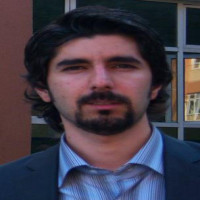
Türk Fransız Deniz Ticareti, Osmanlı Denizcilik Tarihi, Osmanlı Sosyal Tarihi, Lübnan Tarihi,
Aim & Scope
The ATAD journal is an academic publication dedicated to advancing research in various fields of history, including its social, cultural, political, and economic dimensions and the interdisciplinary relations between the science of history and history itself.
The ATAD Journal is open to studies that can offer new perspectives in history and various social science disciplines, including the History of Religions, the History of Sects, Regional Studies, Political Science, International Relations and Political Science, International Relations, and Foreign Policy. The Journal particularly welcomes critical analyses and research that can make theoretical and methodological contributions to these fields. Moreover, the Journal offers opportunities for book reviews and article translations that cover these disciplines or interdisciplinary fields. The Journal is also open to book reviews and translations.
The ATAD Journal publishes scientific studies three times a year (April-August-December) via the DergiPark platform, adopting an open-access policy that facilitates free access to all its publications. The journal's scope encompasses studies from various social science disciplines, including History of Religions, History of Sects, Regional Studies, Political Science, International Relations, and Political Science and Foreign Policy, welcoming critical analyses and research contributions that advance theoretical and methodological frameworks within these fields. The journal additionally offers a platform for book reviews and translation of articles from these interdisciplinary fields, fostering intellectual exchange and accessibility.
Author Guidelines
EXTENDED SUMMARY
Our journal has decided to publish all articles with an Extended Summary starting from 2025. The Extended Abstract is a method that will facilitate the international readability and citation of the articles. Extended Abstracts will be requested in English for Turkish articles and in Turkish for English and Arabic articles.
Extended Abstract will be requested during the first submission of the articles to our journal. The Extended Abstract should be placed after the abstract and keywords before the main text of the article begins.
The Extended Abstract, which will discuss the problem, purpose, method and results of the study in more detail than the traditional abstract, will also pave the way for the articles to be cited internationally, as it will be in English for Turkish articles. Extended Abstracts in Turkish will be requested for articles submitted to our journal in English.
The extended abstract should preferably be in the range of 500-700 words and should clearly present the purpose, problem, method, findings and results of the study in subheadings.
Translated with DeepL.com (free version)
The studies to be submitted to the ATAD Journal will be prepared in the following format. Articles must be uploaded to the site in Word format using the provided template. Articles not adhering to this template or the specified spelling rules will be rejected. The minimum word count for articles is 4000 words, and the maximum is 8000 words, excluding the references. To access the required template, click the 'Article Template' link.
When submitting your study, please remember to include a similarity report, as this is a crucial part of the submission process and helps to ensure the originality of your work.
Page Layout:
1. A4 Vertical, Margins should be 3-bottom, 2-left-right.
2. When creating the text, the top and bottom should be selected as 6 pt from the paragraph text box in the Word program.
3. The line spacing should be selected as single.
Font Family:
1. Palatino Linotype,
2. Main headings 11
3. The text should be written in 10-point size.
Each study should consist of the following main headings in order;
Title
The article title is a crucial element that should reflect the content and be comprehensive. The first letter of each word, except for conjunctions, should be written in capital letters. The English title should be given immediately below the article's title, emphasizing the importance of a well-crafted title.
Abstract
The abstract is a concise summary of the article's purpose, scope, method, and results. It should be between 150-300 words, providing a clear and comprehensive overview of the article's content.
Keywords
At least four keywords reflecting the integrity of the article should be determined. The section containing these keywords should be located immediately below the section containing the abstract.INTRODUCTIONThe introduction is pivotal in establishing the context of the article, providing a synopsis of the study's sections, its equivalent in scientific literature, the significance of the research, the research problem, and its objectives. It is a crucial part that should be detailed and informative.
The discussion, conclusion, and suggestions sections should be addressed in light of the importance of the research. The findings obtained should be discussed with literature and author comments, and the main ideas that emerged should be explained in the conclusion section. Suggestions appropriate to the discussion and conclusion of the study should be made. The references section should be prepared following MLA principles. In-text references and citations should be given in the language of the full text. The template above should be based on and arranged according to the spelling rules. Click for spelling rules.
Appendixes
1. Additional tables, figures, graphics, and pictures should be given on a new page after the references. Each appendix should be classified as Appendix 1 or Appendix 2, and each should be titled separately.
Tables and Figures
2. The titles and features of tables and figures should be created with consideration for the structure provided in the template examples. Table titles should be positioned above the table, while figure captions should be placed below the figure. Tables should be formatted so that they are flush with the text borders. Table titles and text should be set in 10-point font. For example, 'Table 1'. Table Title: The title and insets should be set at 10 points if the figure is contained in a graphic and editable format. Authorship CriteriaThe "Publication Rights Transfer Form" can be accessed from the publication principles page for all authors.
Ethical Principles and Publication Policy
Ethical Principles and Publication Policy
ATAD is published electronically as a “Refereed Journal” on the ULAKBİM DergiPark platform, three issues per year.
Articles sent for publication in ATAD must not have been previously published or sent for publication elsewhere. Studies previously presented at congresses are accepted, provided that this is stated. If the article includes some of the topics in a previously published article by the author(s), this must be noted, and a copy of the previous article must be sent along with the new article.
All articles undergo a rigorous review process, including a scan by the Dergipark similarity program. The Editor or Editorial Board Member has the authority to ensure that only articles meeting our high publication standards are published. This may involve sending articles back to the author(s) for correction, editing them in format, or rejecting them. The Editor or Editorial Board Member then sends the article they deem appropriate to the advisor(s) for review. If necessary, corrections may be requested from the author(s). Requesting the author's corrections does not mean the article will be published. These corrections must be completed and sent to the journal within 15 days. Otherwise, it will be evaluated as a new application. The responsible author will be informed whether the article has been accepted or rejected.
All works sent for publication in the journal are examined in the similarity program. This examination is conducted fairly and transparently, ensuring the plagiarism/similarity rate is at most 15%.
· The ethical, scientific, and legal responsibilities of the articles published in the journal are of utmost importance. They belong to the author(s) and do not reflect the opinions of the Editor and Editorial Board members. This commitment ensures the integrity and quality of our publication.
· Whether accepted for publication in the journal, the writing material is not returned to the authors. No royalties are paid for articles published in the journal.
Journal Written Language
The journal is published in Turkish and English. Articles in Turkish should include English abstracts. During the article preparation, authors are encouraged to use the Turkish Language Association (www.tdk.gov.tr) for guidance on Turkish language usage.
Authorship Criteria
As part of our authorship criteria, all authors must sign the 'Publication Rights Transfer Form' and upload it to the system. This form outlines the responsibilities and rights of the authors, including the transfer of copyrights to the journal upon publication.
PUBLISHING RIGHT TRANSFER FORM
“The author(s), whose names are given below, actively participated in the writing, planning, and data analysis stages of the article titled “……………….” and we declare that we accept all kinds of responsibility related to this study. This article and another study with similar content to this article have not been published anywhere or sent for publication. We also guarantee that all data related to the article will be sent to the editors if necessary. If ATAD Journal evaluates and publishes this article, I declare and accept that we transfer all our copyrights related to the article to ATAD Journal. As authors, I undertake that the Editor and Editorial Board members of ATAD Journal have no responsibility in the event of any claims or lawsuits filed by third parties due to copyright infringement. In addition, I undertake that there is no criminal element or illegal expression in the article, that no illegal material or method was used during the research, that we have obtained all legal permissions related to the study, and that we have acted by ethical rules.
../…/20..
Signature
1. Author Name and Surname:
2. Author “ “ :
Contact:
Price Policy
ATAD does not charge authors article publishing fees, and no fee is requested. Scientific studies published in ATAD are published free of charge.
The Journal of Academic History and Research is licensed under a Creative Commons Attribution-NonCommercial-NoDerivatives 4.0 International License.
